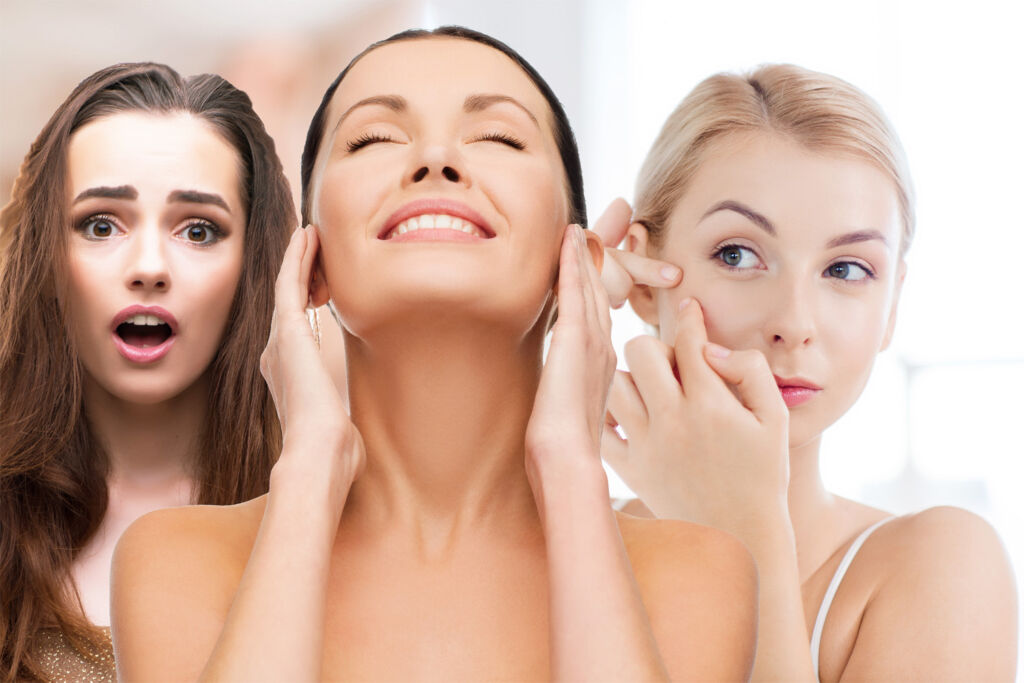

In a study by the Skin Health Alliance, 54% of participants reported feeling the most self-conscious about their skin before the age of 25. Topics covered in the comprehensive survey included sunbed use, the influence and impact of social media, attitudes towards sunscreen and sustainability, interest in anti-ageing injectables before any visible signs of ageing, and lifestyle habits like drinking, smoking, and vaping. Below, we take a closer look at the data.
Adolescence and young adulthood can be difficult times, amplified by self-consciousness and skin issues. To better understand young people’s experiences and priorities, the Skin Health Alliance recently surveyed people aged 18-26 to explore their biggest concerns, influences, and skin health priorities.
A surprising finding from the Skin Health Alliance’s most recent survey was the popularity of sunbeds amongst young people. 60% of respondents said they use sunbeds, with 25% of those using them frequently.
Although the reason behind this upward trend isn’t entirely apparent, social media appears to be a significant factor.


Hashtags like #Sunbed and #Sunbeds have amassed over 100,000 posts and boasted more than 900 million views, with content ranging from sunbed ‘hacks’ and tanning tips to dramatic before-and-after videos. Even celebrities and influencers like Kim Kardashian publicly share their sunbed use, potentially normalising or even glamourising their use to an impressionable audience.
Additionally, Gen Z may have missed out on the majority of prominent public health campaigns warning of sunbed risks, as most were produced many years ago.
Social media’s influence extends to skincare purchases as well. A massive 71% of respondents said they are likely to purchase a skincare product if their favourite influencer recommended it, illustrating the power influencers hold over their followers’ choice.
Young people may look to social media and influencers for their skincare advice and if someone popular is advocating for a certain product or behaviour, many young consumers may feel compelled to try it themselves.
Social media is also shown to impact mental health and self-image. According to the results of the Skin Health Alliance’s survey of all adults, 49% of respondents stated they believe social media makes them feel worse about their skin and appearance.
Among the 18-26 age group, the number escalated to 96% of respondents feeling that social media affects their self-confidence and mental wellbeing with 66% of those stating it impacts them significantly. Social media platforms can amplify skin and appearance insecurities as users are exposed to edited images, beauty filters and content that creates unrealistic expectations.
Despite these concerns, the survey also revealed positive attitudes, particularly with young people’s approach to skin protection and environmental impact. 65% of respondents reported that they often protect their skin with sunscreen, an important part of preventing premature ageing and skin cancer whilst promoting skin health.
Young people are also mindful of sustainability and the impact of their skincare choices, with 85% saying the environmental impact of skincare products is one of their top priorities and 33% of those people saying it is their number one priority.
When considering appearance, 59% of young people stated they are interested in using injectables like Botox to stop the physical signs of ageing.
According to a 2022 survey by the American Academy of Facial Plastic and Reconstructive Surgery, nearly 75% of facial plastic surgeons reported an increase in patients under 30 requesting cosmetic surgery or injectables. This reflects a growing trend of interest in ageing prevention.
A report by Business Insider* found that people aged 40 to 54 made up 56% of all Botox clients, but women between 20 and 39 also saw an 8% increase. This is despite the fact that there is no scientific evidence that preventive Botox works to stop the development of fine lines and wrinkles.
The survey also highlighted lifestyle choices that can impact skin health, such as smoking, vaping, and drinking alcohol, and the visible impacts on the skin of these habits, such as dullness, premature ageing, and dryness. The data revealed that 66% of those surveyed currently smoke, vape, or drink. This highlights the importance of continued education about the long-term effects of these habits on both their skin and overall health.
The study highlighted that skin health goes beyond appearance. It is intrinsically linked to how young people feel about themselves and their sense of self. Through understanding and addressing skin-related concerns, we can work towards a healthier and more confident generation.
About the Skin Health Alliance
The Skin Health Alliance is a leading global skin health accreditation body. It is an independent not-for-profit that works alongside dermatologists, scientists, and the industry. It aims to promote skin health education and ensure products meet the highest scientific standards of skin safety, enabling consumers to make the right skin care choices for their individual needs– improving their health and confidence.
The Skin Health Alliance is a purpose-led organisation that regularly donates to skin disease and cancer research charities and good causes. To date, it has donated almost £1,500,000. More information is available at https://www.skinhealthalliance.org.
